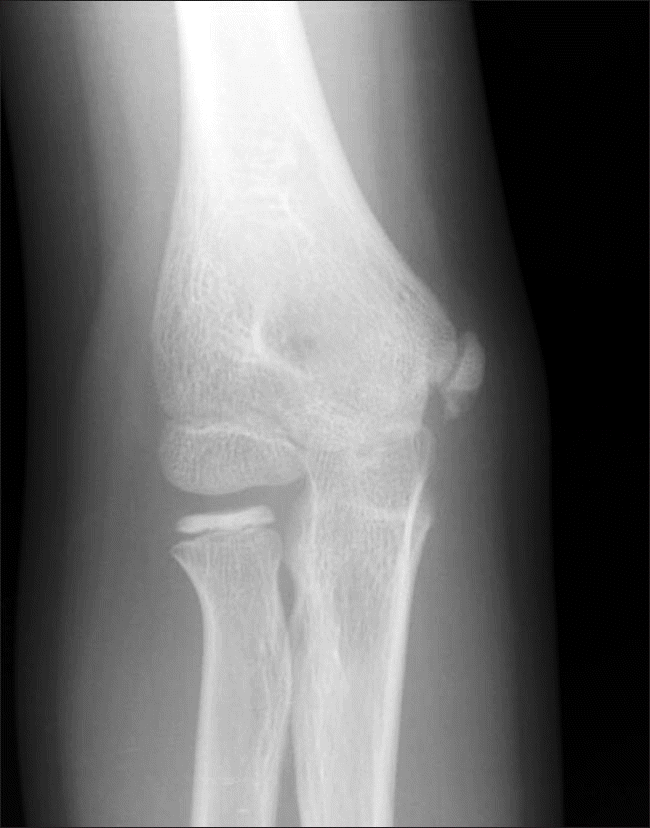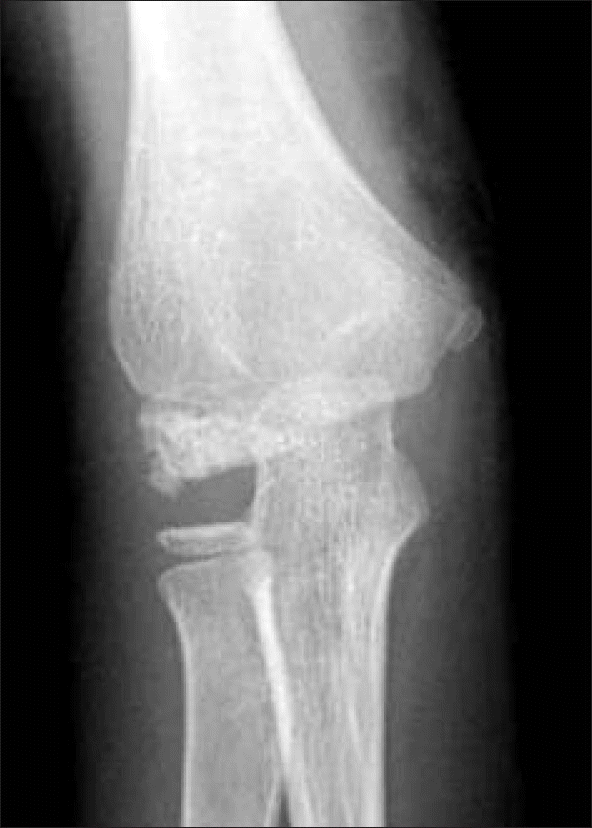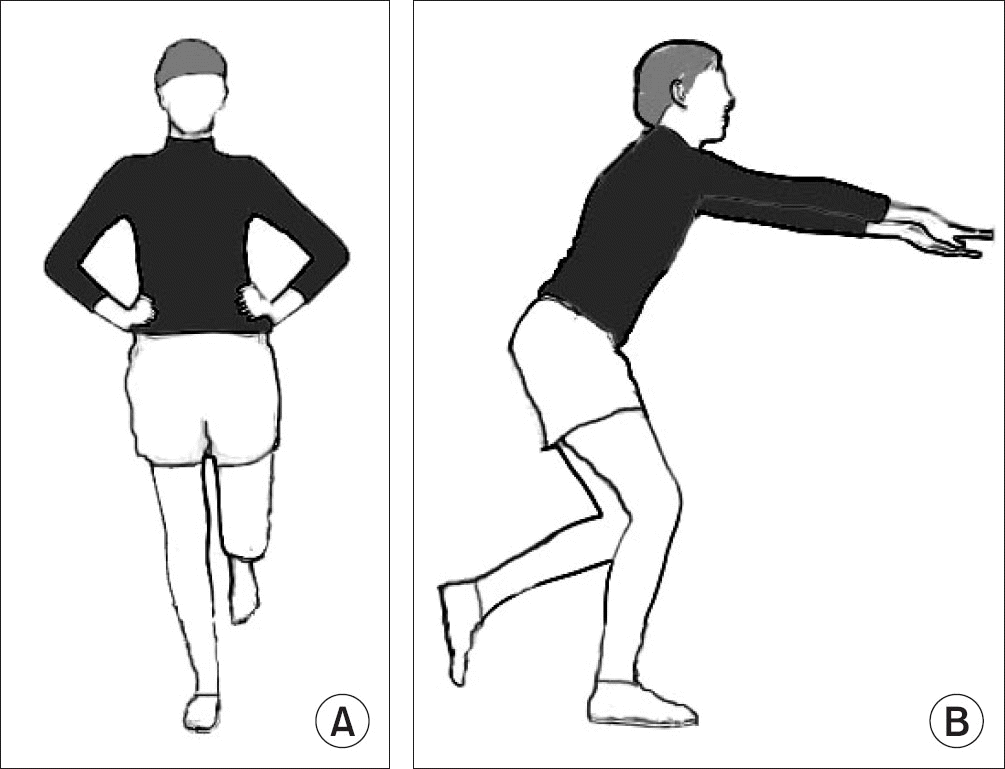Abstract
The elbow and shoulder in young baseball players are prone to injuries. The internal factors of sports injuries are the fragility of the bones and joints of growing children and adolescents. The main external factors of injuries are the competition and eagerness of adolescent players and the motivation of hard-work. Baseball injuries have many causes, including fast rotation and movement of a load from the trunk to arm, repetitive incorrect placement of the arm in the throwing position, too-many throwing practices, etc. Orthopedic surgeons have generally focused on surgical procedure to cure, but it is time to consider and share the methods of injury prevention.
Go to : 
REFERENCES
1. Lyman S, Fleisig GS, Waterbor JW. . Longitudinal study of elbow and shoulder pain in youth baseball pitchers. Med Sci Sports Exerc. 2001; 33:1803–10.

2. Olsen SJ 2nd, Fleisig GS, Dun S, Loftice J, Andrews JR. Risk factors for shoulder and elbow injuries in adolescent baseball pitchers. Am J Sports Med. 2006; 34:905–12.

3. Calabrese GJ. Pitching mechanics, revisited. Int J Sports Phys Ther. 2013; 8:652–60.
4. Ellenbecker TS, Roetert EP, Bailie DS, Davies GJ, Brown SW. Glenohumeral joint total rotation range of motion in elite tennis players and baseball pitchers. Med Sci Sports Exerc. 2002; 34:2052–6.

5. Sciascia A, Kibler WB. . The pediatric overhead athlete: what is the real problem? Clin J Sport Med. 2006; 16:471–7.

6. Hirashima M, Kadota H, Sakurai S, Kudo K, Ohtsuki T. Sequential muscle activity and its functional role in the upper extremity and trunk during overarm throwing. J Sports Sci. 2002; 20:301–10.

7. Young JL, Casazza BA, Press JM. Andrews JR, editor. Biomechanical aspects of the spine in pitching. Injuries in baseball. 1998. Philadelphia: Lippincott;p. 23–35.
8. Happee R, Van der Helm FC. The control of shoulder muscles during goal directed movements, an inverse dynamic analysis. J Biomech. 1995; 28:1179–91.

9. Marshall RN, Elliott BC. Long-axis rotation: the missing link in proximal-to-distal segmental sequencing. J Sports Sci. 2000; 18:247–54.
10. Burkhart SS, Morgan CD, Kibler WB. Shoulder injuries in overhead athletes. The "dead arm" revisited. Clin Sports Med. 2000; 19:125–58.
11. Burkhart SS, Morgan CD, Kibler WB. The disabled throwing shoulder: spectrum of pathology Part I: pathoanatomy and biomechanics. Arthroscopy. 2003; 19:404–20.

12. Greenberg EM, Fernandez-Fernandez A, Lawrence JT. The development of humeral retrotorsion and its relationship to throwing sports. Sports Health. 2015; 7:489–96.

13. Grossman MG, Tibone JE, McGarry MH, Schneider DJ, Veneziani S, Lee TQ. A cadaveric model of the throwing shoulder: a possible etiology of superior labrum anterior-to-posterior lesions. J Bone Joint Surg Am. 2005; 87:824–31.
14. Harryman DT 2nd, Sidles JA, Clark JM, McQuade KJ, Gibb TD, Matsen FA 3rd. Translation of the humeral head on the glenoid with passive glenohumeral motion. J Bone Joint Surg Am. 1990; 72:1334–43.

15. Burkhart SS, Morgan CD. The peel-back mechanism: its role in producing and extending posterior type II SLAP lesions and its effect on SLAP repair rehabilitation. Arthroscopy. 1998; 14:637–40.

16. Ramappa AJ, Hawkins RJ, Suri M. Shoulder disorders in the overhead athlete. Instr Course Lect. 2007; 56:35–43.
17. Ludewig PM, Cook TM. Alterations in shoulder kinematics and associated muscle activity in people with symptoms of shoulder impingement. Phys Ther. 2000; 80:276–91.

18. Ludewig PM, Hoff MS, Osowski EE, Meschke SA, Rundquist PJ. Relative balance of serratus anterior and upper trapezius muscle activity during push-up exercises. Am J Sports Med. 2004; 32:484–93.

19. Ekstrom RA, Donatelli RA, Soderberg GL. Surface electromyographic analysis of exercises for the trapezius and serratus anterior muscles. J Orthop Sports Phys Ther. 2003; 33:247–58.

20. Hutchinson MR, Ireland ML. Overuse and throwing injuries in the skeletally immature athlete. Instr Course Lect. 2003; 52:25–36.
21. Schwab GH, Bennett JB, Woods GW, Tullos HS. Biomechanics of elbow instability: the role of the medial collateral ligament. Clin Orthop Relat Res. 1980; 146:42–52.
22. Hines RF, Herndon WA, Evans JP. Operative treatment of Medial epicondyle fractures in children. Clin Orthop Relat Res. 1987; 223:170–4.

23. Louahem DM, Bourelle S, Buscayret F. . Displaced medial epicondyle fractures of the humerus: surgical treatment and results. A report of 139 cases. Arch Orthop Trauma Surg. 2010; 130:649–55.

24. Lawrence JTR, Patel NM, Macknin J. . Return to competitive sports after medial epicondyle fractures in adolescent athletes: results of operative and nonoperative treatment. Am J Sport Med. 2013; 41:1152–7.
25. Rohrbough JT, Altchek DW, Hyman J, Williams RJ 3rd, Botts JD. Medial collateral ligament reconstruction of the elbow using the docking technique. Am J Sports Med. 2002; 30:541–8.

26. Petty DH, Andrews JR, Fleisig GS, Cain EL. Ulnar collateral ligament reconstruction in high school baseball players: clinical results and injury risk factors. Am J Sports Med. 2004; 32:1158–64.
27. Leahy I, Scorpion M, Ganley T. Common medial elbow injuries in the adolescent athlete. J Hand Ther. 2015; 28:201–10.

28. Stodden DF, Fleisig GS, McLean SP, Andrews JR. Relationship of biomechanical factors to baseball pitching velocity: within pitcher variation. J Appl Biomech. 2005; 21:44–56.

29. Krajnik S, Fogarty KJ, Yard EE, Comstock RD. . Shoulder injuries in US high school baseball and softball athletes 2005 2008. Pediatrics. 2010; 125:497–501.
30. Lyman S, Fleisig GS, Andrews JR, Osinski ED. Effect of pitch type, pitch count, and pitching mechanics on risk of elbow and shoulder pain in youth baseball pitchers. Am J Sports Med. 2002; 30:463–8.

31. Davis JT, Limpisvasti O, Fluhme D. . The effect of pitching biomechanics on the upper extremity in youth and adolescent baseball pitchers. Am J Sports Med. 2009; 37:1484–91.

32. Escamilla RF, Fleisig GS, Barrentine SW, Zheng N, Andrews JR. Kinematic comparisons of throwing different types of baseball pitches. J Appl Biomech. 1998; 14:1–23.

33. Dun S, Loftice J, Fleisig GS, Kingsley D, Andrews JR. . A biomechanical comparison of youth baseball pitches: is the cur-veball potentially harmful? Am J Sports Med. 2008; 36:686–92.
34. Hutchinson MR, Laprade RF, Burnett QM 2nd, Moss R, Terpstra J.Injury surveillance at the USTA Boys' Tennis Championships: a 6-yr study. Med Sci Sports Exerc. 1995; 27:826–30.
35. Pennock AT, Pytiak A, Stearns P. . Preseason assessment of radiographic abnormalities in elbows of little league baseball players. J Bone Joint Surg Am. 2016; 98:761–7.

36. DeBerardino TM, Arciero RA, Taylor DC, Uhorchak JM. Prospective evaluation of arthroscopic stabilization of acute, initial anterior shoulder dislocations in young athletes. Two-to five-year follow-up. Am J Sports Med. 2001; 29:586–92.
37. Lawton RL, Choudhury S, Mansat P, Cofield RH, Stans AA. Pediatric shoulder instability: presentation, findings, treatment, and outcomes. J Pediatr Orthop. 2002; 22:52–61.

38. Hewitt M, Getelman MH, Snyder SJ. Arthroscopic management of multidirectional instability: pancapsular plication. Orthop Clin North Am. 2003; 34:549–57.

39. Jones KJ, Wiesel B, Ganley TJ, Wells L. Functional outcomes of early arthroscopic bankart repair in adolescents aged 11 to 18 years. J Pediatr Orthop. 2007; 27:209–13.

Go to : 




 PDF
PDF ePub
ePub Citation
Citation Print
Print






 XML Download
XML Download